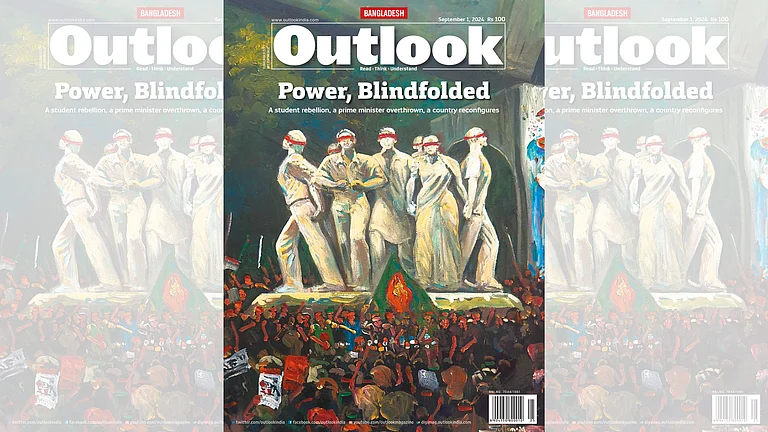Female directors continue to face a disparity in opportunities in Hollywood compared to male directors, despite the box office success of Greta Gerwig's "Barbie" and Elizabeth Banks' "Cocaine Bear." Additionally, major studios, which promised to review their hiring practices following George Floyd's murder, still struggle to produce films from underrepresented people of color.
A recent report from USC Annenberg's Inclusion Initiative has uncovered that the entertainment industry's promises to promote inclusion are largely seen as "performative acts" and “not real steps towards fostering change.” This marks the second report in as many days to highlight the persistence of gender disparities in Hollywood.
Despite notable achievements such as "Barbie" becoming the year's most successful film and the highest-grossing movie ever directed by a woman, male directors still dominate the most high-profile projects at studios. Another study conducted by the Center for the Study of Women in Television and Film at San Diego State University echoes these findings.
According to the USC report, out of the 100 highest-grossing domestic films in 2023, a total of 116 directors were involved, but only 14 of them, which accounts for 12.1%, were women.
While this marked a slight increase from the 9% of top-grossing films directed by women in 2022, the report argues that the proportion of female filmmakers in leading movie projects has not significantly shifted since 2018 when only 4.5% of directors were women.
In 2023, just four women of color, constituting 3.4% of the total, directed one of the 100 highest-grossing films. Among them, three were of Asian descent, including Adele Lim ("Joy Ride"), Celine Song ("Past Lives"), and Fawn Veerasunthorn ("Wish"). The fourth woman of color to direct a top film, Nia DaCosta of "The Marvels," is Black. Notably, the percentage of women of color directors in 2023 remained consistent with the figures from 2022.
Universal Pictures led the way among film distributors by hiring four female directors, marking a notable achievement. Following closely were Lionsgate and Disney, who brought on three and two female filmmakers, respectively.
Over the past 17 years, Universal Pictures has appointed a total of 27 women, making up 9.2% of their major theatrical releases. In comparison, Warner Bros. stood at 6.6%, Sony Pictures Entertainment at 6.3%, and Walt Disney Studios at 6.1%. Unfortunately, Paramount Pictures had the lowest rate of hiring female filmmakers, with only 1.6% of their selections being women.
The study's findings revealed that in 2023, 26 directors, comprising 22.4% of the directors of the top 100 grossing movies, belonged to underrepresented racial and ethnic groups. Among these directors, 14 were of Asian descent (53.8%), eight were Black (30.8%), two were Hispanic/Latino (7.7%), and two were multiracial/multiethnic (7.7%). This number of underrepresented directors remained relatively unchanged from 2022 when the percentage was at 20.7%.
Among major distributors, Warner Bros. was the next top performer in 2023 with five films from underrepresented directors, followed by Walt Disney Studios with four. Over the past 17 years, Lionsgate had the highest percentage of films with an underrepresented director attached (21.7%), followed by Universal Pictures (18.3%) and Sony Pictures Entertainment (17%).
In 2023, among major film distributors, Warner Bros. stood out as a top performer by featuring five films directed by individuals from underrepresented backgrounds. Walt Disney Studios followed closely with four such films.
When considering the span of the last 17 years, Lionsgate led with the highest percentage of films having an underrepresented director, at 21.7%. Universal Pictures followed with 18.3%, and Sony Pictures Entertainment had 17% of their films directed by individuals from underrepresented groups.
The study’s authors note that there are drawbacks to measuring hiring in terms of box office receipts. Some films released toward the end of 2023 don’t have enough time to gross enough money to be included in the list, for instance. It also doesn’t capture women or people of color working as directors across lower-earning films in the independent space or who are employed by streaming services like Netflix. The study notes, however, that 26.9% of the directors Netflix hired in 2021 were female, a percentage that far eclipses any major distributor. It did not provide more recent hiring data.
The authors of the study point out certain limitations in assessing hiring based solely on box office earnings. For instance, some films released towards the end of 2023 might not have had sufficient time to accumulate substantial earnings to be included in the list.
Additionally, this approach does not account for women or people of color who work as directors on lower-earning independent films or those employed by streaming services such as Netflix.
However, it's worth noting that in 2021, Netflix hired a significant percentage of female directors, amounting to 26.9%, surpassing the hiring practices of major distributors. Unfortunately, the study did not provide more recent data on Netflix's hiring trends.
“This report offers a contrast to those who might celebrate the dawning of change in Hollywood after a year in which ‘Barbie’ topped the box office,” the study’s authors write. “One film or one director are simply not enough to create the sea change that is still needed behind the camera. Until studios, executives and producers alter the way they make decisions about who is qualified and available to work as a director on top-grossing films, there is little reason to believe that optimism is warranted.”



























